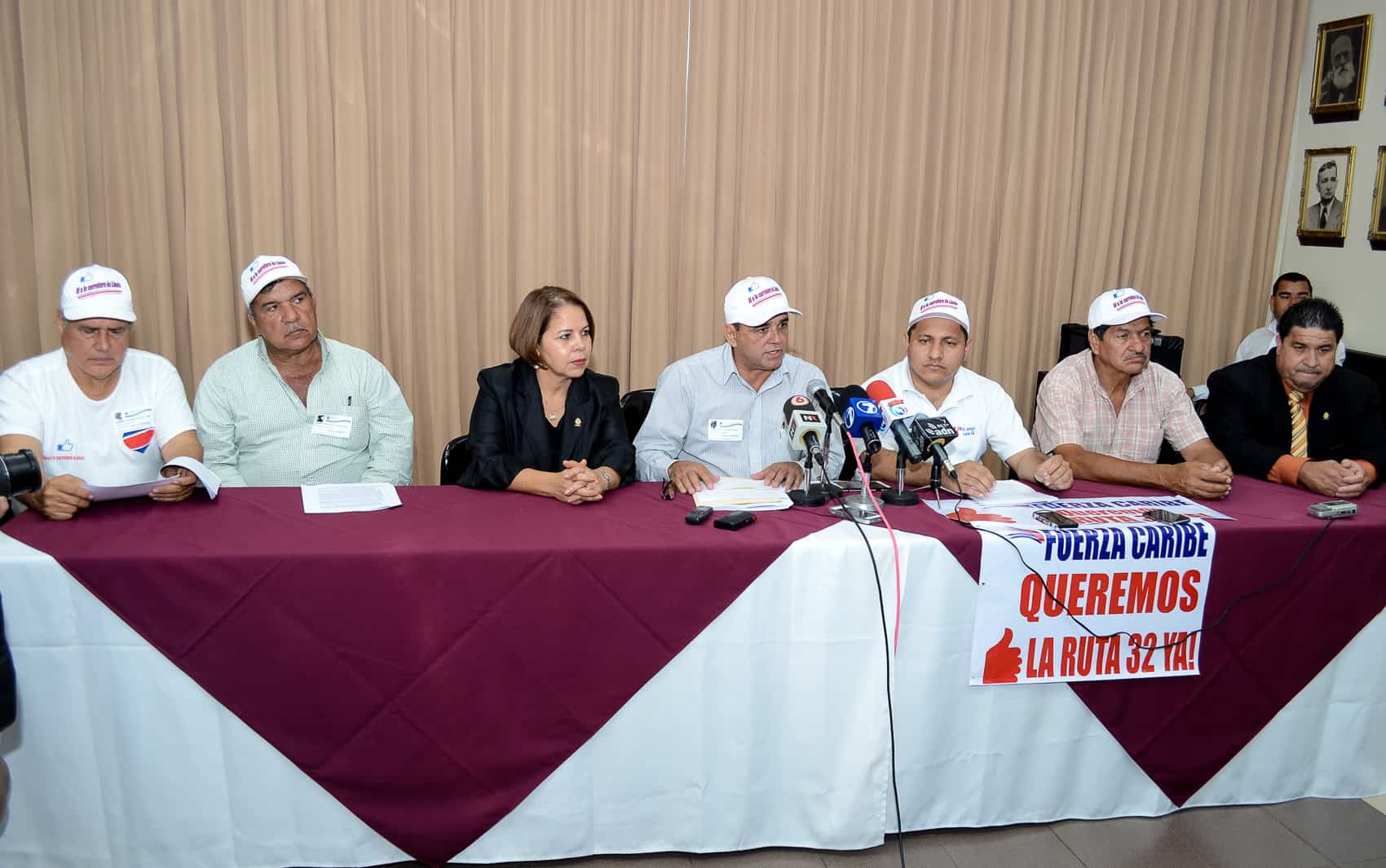Hundreds of Caribbean residents on Tuesday traveled from the province of Limón to San José to urge lawmakers to expedite a Chinese loan to finance the expansion of Route 32, the main highway connecting the province with the capital.
At least 25 buses and smaller vehicles left Guápiles at 10 a.m., and after arriving in San José, began driving slowly through the city streets causing traffic jams.
The protesters call themselves “the Caribbean Force,” and in the early afternoon, they headed to the Legislative Assembly to demand a meeting with lawmakers.
Shortly after, some of the group’s leaders met with Elibeth Venegas of the ruling National Liberation Party, Walter Céspedes of the Social Christian Unity Party, and Manuel Hernández of the Libertarian Movement Party.
In a statement, the “Caribbean Force” claimed the “Chinese company CHEC is the only one capable of carrying out the expansion project.” The statement also criticized recent newspaper ads placed by local entrepreneurs claiming to be “a local alternative for the [Route 32] project.”
Protesters said the local group’s proposal “will condemn Limón to waiting at least 15 more years for new project plans, budgets and public bids.”
President Laura Chinchilla’s administration supports the highway’s expansion – with help from China – from two to four lanes along most of the 107-kilometer route, which they say will improve access to the province, particularly to the ports of Limón and Moín, two key exit routes for the country’s exports.
If approved by lawmakers, the expansion would be be financed by a $465 million loan from the Chinese government and carried out by the Chinese Harbour Engineering Company (CHEC).
Following the bill’s approval in the Assembly’s Financial Affairs Commission in February, several professional associations and private-sector chambers have expressed strong reservations about granting the project to the Chinese company. The cost is too high, they say, and the contract is unfair to the country.
In order to become a law, the bill authorizing the loan must be voted on twice by the full Assembly and signed by President Chinchilla.
At the end of Tuesday’s meeting with protesters, legislator Walter Céspedes said he believes the bill could be approved in a first round of debate next week, as most lawmakers support the proposal.






